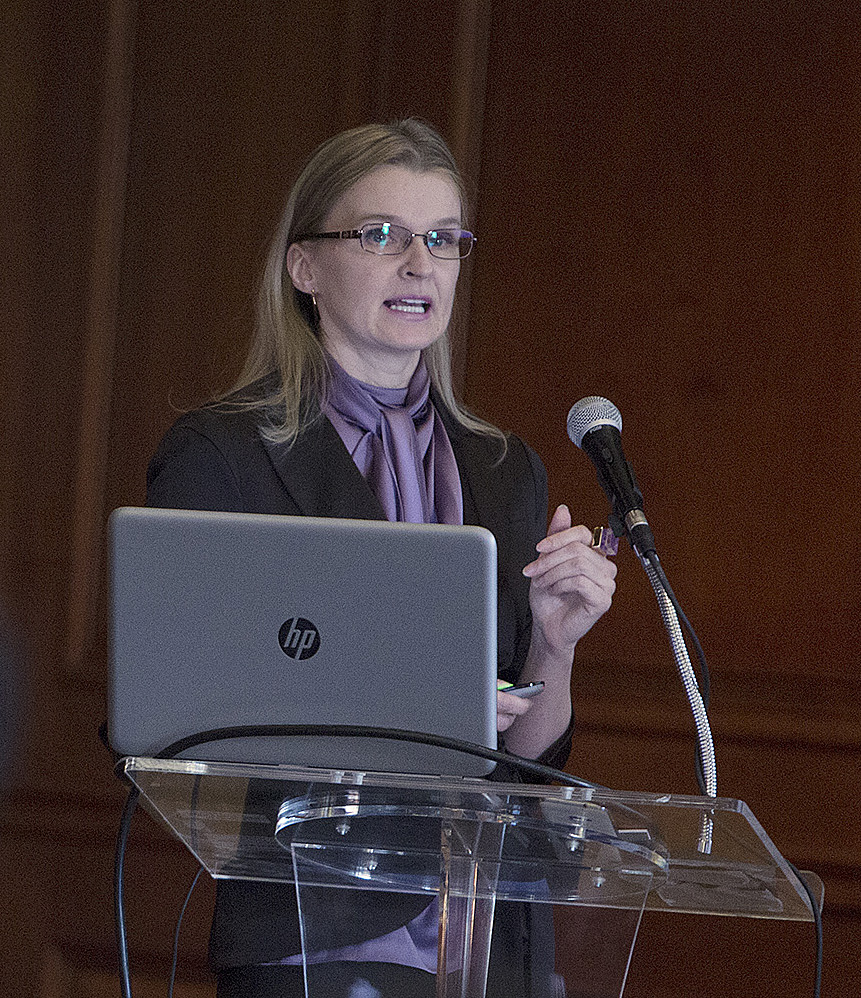
Julia Kravchenko, MD, PhD
Department of Surgery
Duke University School of Medicine
She / Her / Hers
Alzheimer’s disease is the most common cause of dementia, accounting for an estimated 60% to 80% of cases. In the United States, about one in nine people aged 65+ has Alzheimer’s dementia. The exact etiology of Alzheimer’s disease remains unclear. It develops as a result of multiple factors: while older age and genetics are the greatest risk factors, the contribution of environmental factors in the pathology of Alzheimer’s disease are less studied. Exposures to the various environmental factors including heavy metals, air pollutants (particulate matter), pesticides, nanoparticles containing metals, and industrial chemicals have been shown resulting in higher risk of Alzheimer’s disease and/or acceleration of disease progression. The mechanisms that have been documented for environmental contaminants include an enhancement of amyloid-β (Aβ) peptide along with tau phosphorylation, resulting in the initiation of senile plaques and neurofibrillary tangles, which, in its turn, results in the death of neurons. Various environmental risk factors and the mechanisms of their impacts on neurodegeneration and cognitive decline will be discussed.
About the Speaker: Dr. Kravchenko is an Assistant Professor in the Department of Surgery and an Assistant Professor in the Department of Population Health Sciences, Duke University School of Medicine. Dr. Kravchenko’s experience includes analyses of geographic and racial disparities in health outcomes across the US, with specific focus on population-based modeling of health outcomes, analysis of treatment effectiveness, comorbidities and multimorbidity, and analysis of health impacts of socioeconomic and behavioral factors. Dr. Kravchenko also studies the health impacts of environmental exposures on disease risk, morbidity and mortality, including analyses of health impacts of exposures to ambient air pollutants (with the focus on respiratory, neurodegenerative and cognitive, cardiovascular, and renal diseases), health risks in populations living in close proximity to animal concentrated feeding operations (CAFOs), and health impacts of exposures from coal-burning power plants and coal ash impoundments.
Friday, December 2, 2022, 12:00-1:15 pm Eastern
Field Auditorium Room 1112, Grainger Hall (9 Circuit Dr, Durham, NC)
Masks are now optional for in-person attendees. Please stay home if you aren’t feeling well – you may attend via Zoom instead (see below).
This seminar will also be presented live via Zoom.
**UPDATE 11/21/2022: This seminar is Zoom only (no in-person option).
Register HERE to receive a Zoom link for our entire Fall 2022 seminar series!
You only need to register ONCE to receive the link for our entire Fall series
